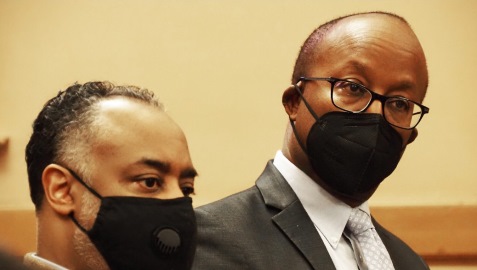Opinion column

by State Rep. Pam Curtis, D-32nd Dist.
In Week 3 of the Kansas Legislative Session, #AxeTheFoodTax legislation continues to move through the legislative process and a controversial redistricting map, “Ad Astra 2,” was passed out after much debate and pushback from House Democrats and a few Republicans. The Clean Slate Bill was introduced in House Judiciary. Finally, the week closed out with a hearing on a bill to protect the state reptile: the ornate box turtle.
Be sure to answer my 2022 Legislative Survey. We will soon be voting on many of these questions, and I want to know your feelings on the most important legislation before I cast my vote. Your opinion matters to me. The survey only takes a few moments to answer.
AxeTheFoodTax gets a hearing
The House Democrats’ food tax cut bill, HB 2487, received a hearing on Tuesday, Jan. 25. The bill cuts the state sales tax on food to 0% from 6.5%. The tax has been in place since the 1930s and raised 10 times, most recently under former Gov. Sam Brownback. If the bill passes, the average Kansas family will save $500 per year.
Last year, the Legislature again cut corporate taxes. Now it is time for hardworking families to see tax relief.
House Republicans pass gerrymandered map “Ad Astra 2”
On Wednesday, Jan. 26, the “Ad Astra 2” map passed the House on a 79-37 vote one day after a four-hour debate. Now the map is in Gov. Kelly’s hands.
All House Democrats opposed the map. From the date of introduction to passage was only five days, leaving little time for the public to study the map and submit feedback to the committee. Considering the promises from Republican leadership of “unprecedented transparency,” this was a disappointing timeline.
Ad Astra 2 places Lawrence into the Big First, a heavily rural district with stark differences in economy, geography, socioeconomic status, racial makeup, and partisanship, among other demographics. Lawrence was carved with meticulous attention out of Douglas County — no other parts of Douglas were moved. It is noteworthy that of the 650+ pieces of testimony received throughout the redistricting process, not a single member of the public called for Lawrence to join the 1st Congressional District. Many of us saw this as a textbook example of gerrymandering.
The map also contradicts public input regarding the 3rd Congressional District. Hundreds of Kansans demanded the metro cores of Wyandotte and Johnson county stay intact; despite this clear plea, House Republicans hacked the counties in half.
A line was drawn through Wyandotte County to carve up neighborhoods – generally following I-70 dividing the county north/south. The boundaries divide the community along racial lines, another clear-cut example of prohibited gerrymandering.
During the floor debate, I spoke strongly against the maps that divide Wyandotte County.
The efforts to divide Wyandotte County into two congressional districts in the redistricting process are very disappointing. The map that passed divides Wyandotte County roughly along I-70 placing the north part of the county in the 2nd Congressional District and the southern part in the 3rd Congressional District. An additional map that was offered divided Wyandotte County east-west roughly along 65th Street.
It is wrong to divide Wyandotte County. If we cannot agree on a map that keeps the core of the KC Metro area in the same congressional district, then it would be better to keep Wyandotte County whole in the same congressional district rather than divide the county into two.
Clean slate legislation
The House Judiciary Committee accepted my request, and the “Clean Slate” bill has been introduced. The bill was drafted based on the recommendations of the Kansas Judicial Council, Criminal Law Advisory Committee. It will provide for an automated process for sealing of criminal records from public view, referred to as expungement.
Other states have adopted various measures of Clean Slate legislation to help remove barriers for returning citizens.
Clean Slate legislation will help thousands of Kansans who are eligible for expungement however lack the time and resources to get their record expunged manually.
Expungement removes a barrier to opportunity and gives people with criminal records a chance to move on with their lives and get back to work once they have paid their debt to society. There is growing support among the business community for Clean Slate legislation and as they adopt and participate in second chance hiring policies.
‘Save the Turtles’: The Ornate Box Turtle
A bill to prohibit the unlawful collection or possession of the ornate box turtle had a hearing on Thursday, Jan. 27, in the Agriculture committee. Kansas designated the ornate box turtle the official state reptile in 1986. “Save the turtles” could be heard passing through the halls after the committee adjourned.
Happy Kansas Day!
Kansas Day was Saturday, Jan. 29. There were events across the state to celebrate the great state of Kansas.
On Wednesday, local government officials visited Topeka for Local Government Day. It is always a pleasure to visit with local officials from Wyandotte County and around Kansas. This provides an opportunity for us to meet and discuss matters before the Kansas Legislature. And it is always good to see people from home. The time they take to come to Topeka is very much appreciated.
Please take the 2022 Legislature Survey if you haven’t already. We will soon be voting on these important issues in the Legislature, and your opinion matters to me. The survey is at https://www.curtisforkck.com/2022survey.
It is a special honor to serve as your state representative. I value and appreciate your input on issues facing state government. Please feel free to contact me with your comments and questions.
My office address is Room 452-S, 300 SW 10th, Topeka, KS 66612. You can reach me at 785-296-7430 or call the legislative hotline at 1-800-432-3924 to leave a message for me. You can also email me at [email protected].

